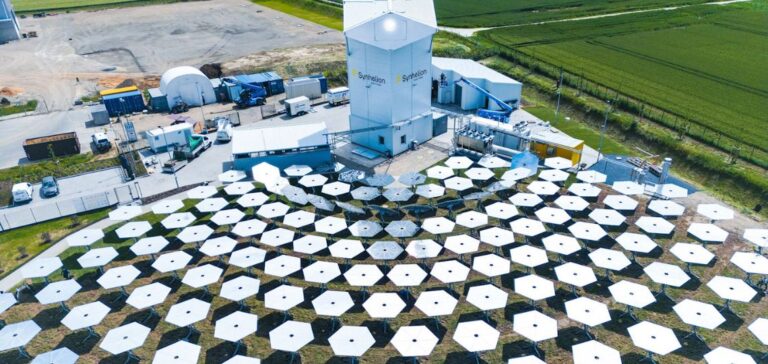Swiss technology company Synhelion, specializing in synthetic fuels, has announced a $1 billion investment in Morocco to develop a solar fuel production plant. This initiative follows the company’s pilot projects in Germany and Spain.
A Strategic Choice for Implementation
Morocco was chosen due to several key factors, including its high solar exposure, the availability of essential raw materials, and a well-developed industrial network. The announcement was made by Gianluca Ambrosetti, CEO and co-founder of Synhelion, in an interview with Asharq Business. He specified that the project was presented to Morocco’s Minister of Investment, Karim Zidane, last January on the sidelines of the World Economic Forum in Davos.
Advanced Solar Conversion Technology
The project is based on Sun-to-Liquid technology, developed by the Swiss Federal Institute of Technology Zurich. This process captures and concentrates solar rays using mirror fields directed toward a receiver at the top of a tower. The intense heat generated, exceeding 1000°C, powers a thermal reactor where methane, carbon dioxide, and water are converted into liquid fuels. These solar fuels are equivalent to traditional fossil fuels such as gasoline, diesel, and kerosene.
Production Capacity and Financing
The Moroccan plant aims for an annual production of 100,000 tons of synthetic fuels. To finance this project, Synhelion plans a funding structure combining bank loans, equity capital, and potentially institutional support from European governments. The company already has backing from several industrial partners, including Lufthansa in the aviation sector, Eni in energy, and AMAG in the automotive industry.
A Long-Term Competitiveness Strategy
One of Synhelion’s stated goals is to gradually reduce the production cost of its solar fuels to approximately $1 per liter. Economic competitiveness is a key factor in the widespread adoption of these synthetic fuels across the transportation and energy markets.






















